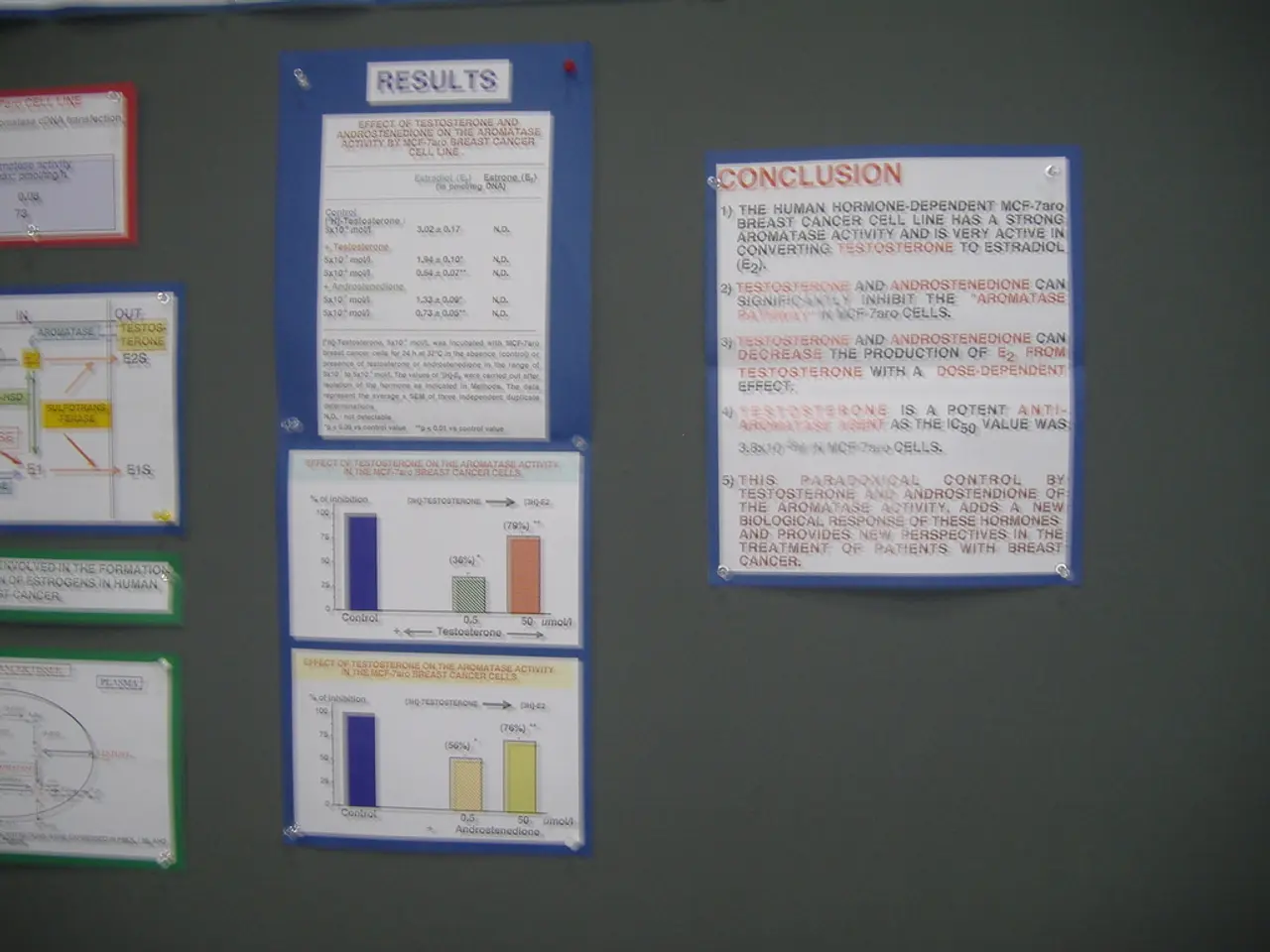Trump's alluring lure towards an Orwellian reality
In the realm of economic policy, the integrity of data is paramount. However, recent actions by former U.S. President Donald Trump have raised concerns about the politicization of government economic data, and the potential consequences of such actions.
Trump, who ran his campaign promising to bring back the high "Biden inflation," has been critical of Federal Reserve Chairman Jerome Powell since his first term. The President's criticism intensified when Powell refused to lower interest rates due to the uncertain inflation situation, leading Trump to refer to Powell as a "stubborn IDIOT" on his online service "Truth Social" and urging the Fed board to "TAKE CONTROL" if Powell continued to refuse to "significantly" lower the policy rate.
One of Trump's most controversial moves was the dismissal of the head of the Labor Statistics Bureau, Erika McEntarfer, following the release of labour market numbers that he believed were "FAKED" to make him and the Republicans look bad. The corrections to labour market data resulted in a downward revision of 258,000 jobs for May and June, marking the strongest two-month adjustment outside of the pandemic.
This action has been met with criticism from various quarters. Senator Bernie Sanders considered the firing of McEntarfer as "very dangerous" and another step towards authoritarianism. Sanders also stated that Trump's actions could undermine the integrity of government data and make it harder for the country to move forward.
Art Hogan, chief investment strategist at B. Riley Wealth, compared Trump's actions to those that occur in dictatorships, not democracies. Doug Holtz-Eakin, president of the American Action Forum, stated that Trump is "shooting the messenger" by politicizing the Labor Statistics Bureau.
The erosion of trust and market stability is a significant concern. The U.S. BLS commissioner's firing over disputed jobs reports triggered market volatility, signaling how political agendas interfering with data integrity can ripple through global financial systems.
Accurate and timely data is essential for understanding economic policies' impacts, especially on vulnerable communities. Removing officials who present truthful data can hide economic failures, worsening outcomes for groups such as Black and brown workers.
The politicization of economic data also poses a threat to democratic accountability. When economic data becomes politicized, the public may be fed propaganda rather than facts, diminishing transparency and accountability in governance. This is viewed as a step toward authoritarian tendencies by punishing truth-tellers and controlling information flow.
Moreover, the politicization threatens not only confidence but also specific financial instruments tied to economic metrics. Key institutions and economists warn this politicization rivals other major threats like manipulation of Federal Reserve decisions.
The long-term damage and difficulty of recovery from such actions are also significant. Credibility lost due to politicization is hard to rebuild, leaving the economy vulnerable to misinformation and poor policy choices.
A recent Fox News poll shows that 62% of voters disapprove of Trump's handling of tariffs, 58% are against the tax and spending package, and 55% are dissatisfied with his economic policy overall. Michael Strain, economist at the American Enterprise Institute, warned that Trump's actions risk significant economic damage by politicizing official government data.
In conclusion, the case of President Trump's dismissal of the BLS head underscores broad concerns that politicizing economic data risks undermining market stability, economic policymaking, democratic transparency, and social equity by substituting factual reporting with politically motivated narratives. George Orwell's quote, "In an age of universal deceit, telling the truth is a revolutionary act," is particularly relevant in this context.
- The politicization of economic data, as demonstrated by former U.S. President Donald Trump's actions, could lead to a threat to democratic accountability by providing propaganda instead of facts, thereby decreasing transparency and accountability in governance.
- The dismissal of the head of the Labor Statistics Bureau by Trump due to disputed jobs reports has raised concerns about market stability, especially when political agendas interfere with data integrity, as it can ripple through global financial systems.
- The politicization of economic data, as warned by economist Michael Strain, poses a risk to social equity as well, as removing officials who present truthful data can hide economic failures, worsening outcomes for vulnerable communities such as Black and brown workers.





